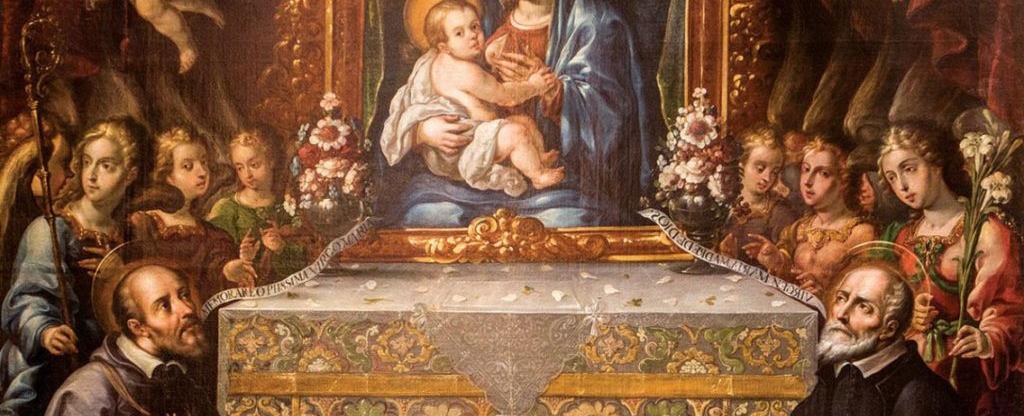Francis de Sales the Oratorian

There is something stirring about seeing two greats from different generations together in the same place. In the world of sports, for instance, some memorable photo-ops have come about this way—say, with a young Lebron James standing next to Bill Russell or with Derek Jeter warming up on the same baseball diamond as Cal Ripken Jr. In the life of the Church, these sorts of meetings capture our imaginations as well. Tradition has it, for example, that St. Francis de Sales met St. Philip Neri before Philip died in 1595, and a few artists were so intrigued by this idea that today we have paintings that depict Francis and Philip together, even though no written evidence exists that such a meeting took place.
Whether or not Francis de Sales ever got the chance to meet Philip Neri, it's clear that the Oratorians and their way of life had a profound impact on the author of An Introduction to the Devout Life. Francis ended up being close friends with some of Philip's disciples, including Baronius and Juvenal Ancina, who imparted to him the essential nature of the Oratorian charism. During a six-month stay in Rome (1598), Francis paid regular visits to the Oratory there, and a year later he established an Oratory of his own in Thonon (Eastern France). As Paul Türks notes, "[Francis] hoped for great results from a community that would have, in addition to zeal for its work, a trace of the amiable and attractive love of its founder Philip" (The Fire of Joy, p. 145).
Today, many Catholics naturally associate St. Francis de Sales with the Salesian Order, and rightly so. But the Congregation of the Oratory also rightfully claims Francis as one of their own and continues to look to him as a patron and intercessor. Blessed John Henry Newman, of course, lived some two centuries after Francis, but whenever I read Newman's devotional writings, I'm struck by the similarities between his spirituality and de Sales's. As just one example, the following admonition from Francis, it seems, could just as easily have come from the pen of Newman: "Retire at various times into the solitude of your own heart, even while outwardly engaged in discussions or transactions with others, and talk to God. This mental solitude cannot be prevented by the multitude of those about you, for they are not about your heart but about your body: so your heart may remain undisturbed, in the presence of God alone."
The overlap between these two writers from different eras bears testimony to how a community of religious life can develop a spiritual DNA that transcends a given time or place. The Oratorian legacy is alive and well (I've seen its impact firsthand here in Pittsburgh)—both intellectually, but also through the communities of friendship and prayer that flower wherever Oratorians put down roots. For the month of February, consider turning to Newman's Sermons or Francis's Devout Life for devotional material. I promise you that, if you come to these texts with a heart open to God's grace, you will walk away from them blessed.
St. Francis de Sales, pray for us.
Blessed John Henry Newman, pray for us.
Share
Ryan Marr
Associate Provost at Mercy College of Health Sciences, Iowa
Ryan ("Bud") Marr Associate Provost at Mercy College of Health Sciences. He has served as the Director of NINS and Associate Editor of the Newman Studies Journal from 2017-2020. He is the author of To Be Perfect Is to Have Changed Often: The Development of John Henry Newman's Ecclesiological Outlook, 1845–1877 (Rowman & Littlefield, 2018), and has also contributed essays to Newman and Life in the Spirit (Fortress Press, 2014), Learning from All the Faithful (Pickwick, 2016), and The Oxford Handbook of John Henry Newman (Oxford University Press, 2018). His research interests include the life and writings of John Henry Newman, ecclesiology, and the reception of Vatican II.
Topics
Newsletter
QUICK LINKS

